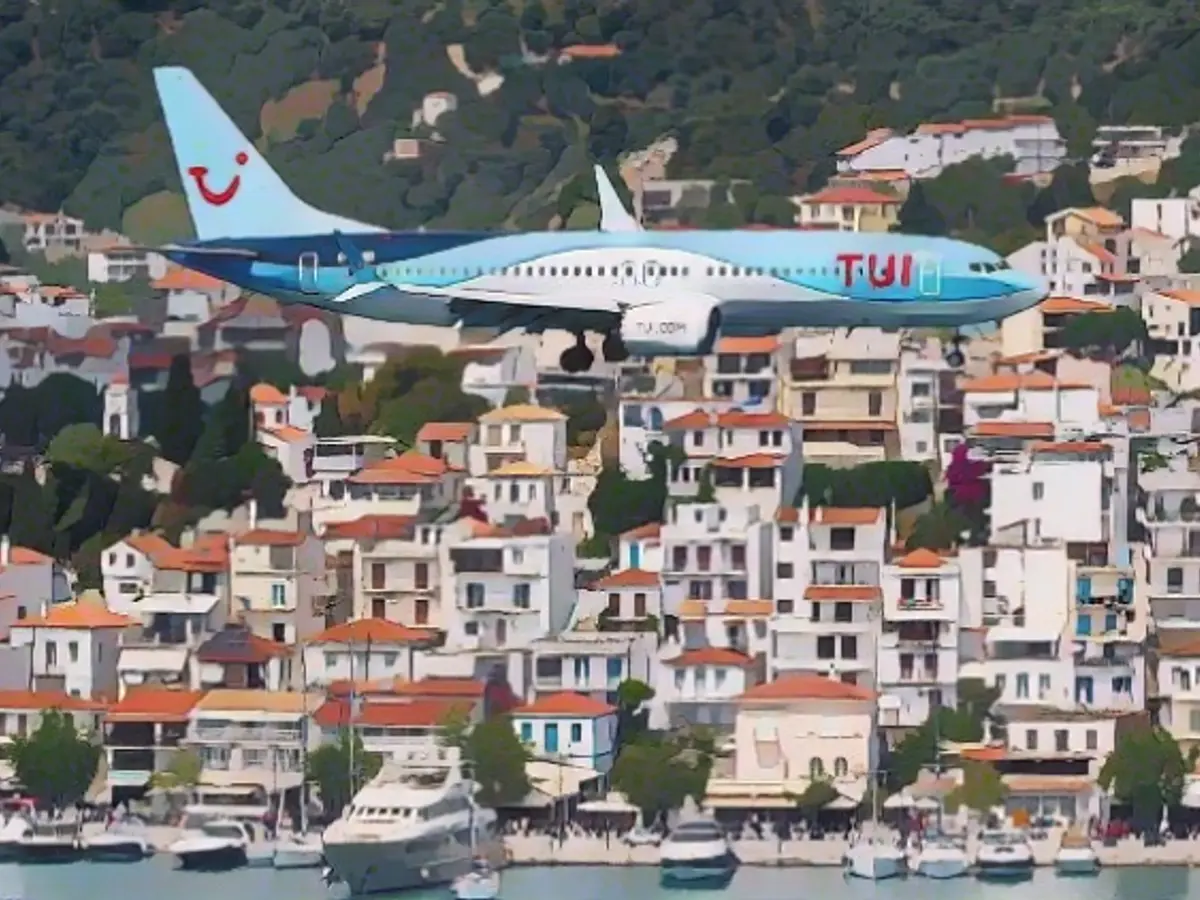Shaking Off the Corona Blues: TUI on a Roll
Buckling under the weight of the coronavirus pandemic, TUI, Europe's largest travel corporation, has bounced back with record profits and skyrocketing bookings. With a strong focus on high-priced offerings and strategic initiatives, TUI is set to conquer the travel industry once more.
Following a successful summer season, TUI outperformed expectations and doubled its operating result compared to the pre-pandemic year. The company's confidence in the coming year is palpable, with revenue and earnings increase predictions of at least 10% and 25%, respectively. TUI CEO Sebastian Ebel believes this optimistic outlook is a testament to the resilience of the tourism industry.
Aiming for profitability, efficiency, and strengthening its market position in all segments, TUI is eager to reclaim its position as a market leader. In light of strong strategic initiatives and booking trends, the travel giant is contemplating a delisting from London Stock Exchange and listing on the Frankfurt Stock Exchange's Prime Standard, with a potential entry into the MDAX.
Its customer base is not deterred by inflation, as TUI focuses on premium offerings where demand continues to thrive. The market has faced challenges in the lower market segment, where prices have normalized afterwards. Bookings for winter destinations in Egypt, however, were briefly affected by the conflict with Hamas. Despite these hiccups, the dip in demand has been rectified with 13% higher bookings and 4% price hike, and TUI is optimistic about a strong summer season.
In addition to its revenue and earnings growth, TUI aims to scale up its hotel and cruise sectors, further refining its strategies for optimal profits. Room occupancy for its hotel division (Riu, Robinson, Tui Blue) climbed to 80%, while its cruise sector (Tui Cruises, Hapag-Lloyd, Marella lines) saw an adjusted operating result of 48 million euros - a 40% improvement.
The traditional tour operator business, however, experienced losses due to increased marketing and IT expenses, as well as the integration of low-cost airline Ryanair. Nevertheless, TUI is dedicated to reducing its debt by repaying the aid it received during the pandemic.
In conclusion, TUI's recovery from the coronavirus pandemic has been impressive. Its focus on premium offerings, strategic initiatives, and financial management are contributing to its robust growth in revenue and earnings. The company's strong commitment to debt reduction and market positioning makes it an attractive investment prospect, despite the challenges it faces in certain market segments.
Source:
Enrichment Data:
TUI's financial performance and strategic plans reveal the following insights:
Financial Performance
- Hotel Division Earnings: Representation of brands like Riu, Robinson, and Tui Blue sees significant improvement, earning a profit of 150 million euros in the past quarter. Bed occupancy is 80%, and the per bed rate climbs 5% to 94 euros.
- Cruise Division Success: TUI Cruises, Hapag-Lloyd, and Marella lines contributed to the cruise sector's growth, increasing adjusted operating result by 40% to 48 million euros.
- Tour Operator Losses: Traditional tour operator business faced losses due to increased marketing, IT, and Ryanair integration expenses, leading to an adjusted operating loss of 125 million euros.
- Boeing Aircraft Delays: TUI suffers from delays in receiving new Boeing aircraft, receiving only three out of the anticipated 16 to 19 planes. This keeps the fleet running with more expensive older aircraft.
- Debt Reduction: The company aims to reduce its debt through higher profits and efficient financial management, having repaid the aid received during the coronavirus pandemic.
Strategic Plans
- Safety Measures: TUI introduces a 10-point safety plan for hotel operations post-COVID-19, focusing on organization, capacity planning, hygiene measures, and staff training.
- Future Growth: TUI forecasts 16% yearly revenue growth and 4.1% EPS growth, with an eventual 42.1% ROE in three years. Analysts generally hold a positive outlook for TUI's future growth, albeit with concerns about the debt burden.
- Debt Management: TUI's management remains committed to effectively managing its debt, with a goal of reducing the debt burden through higher profits and internal financial management.
Stock Market Plans
- Future Revenue and Earnings Growth: TUI predicts an eventual revenue of 26,476 million euros and earnings of 858 million euros by 2027, with EPS growth of 13.6% per annum.
- Strategic Investments: TUI invests in its hotel and cruise sectors to increase adjusted operating profit by 7 to 10% and nurture growth.
- Market Positioning: Despite challenges, TUI's diversified portfolio and strong market position make it an attractive investment opportunity, with the CEO viewing the company's growth as 'on the way.'








